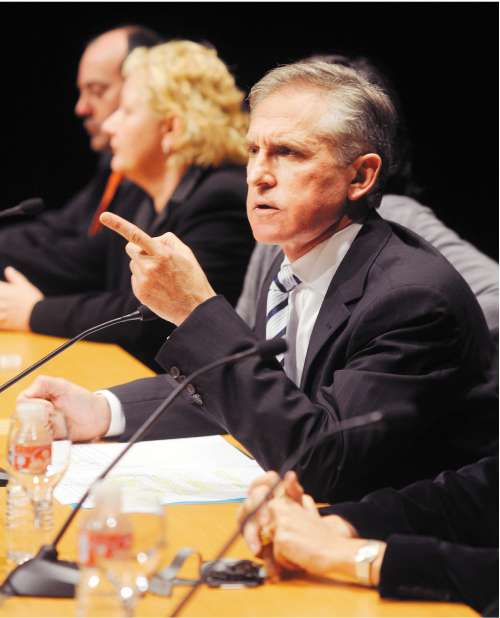Guggenheim sues ex-finance boss who admitted stealing £400,000

Your support helps us to tell the story
From reproductive rights to climate change to Big Tech, The Independent is on the ground when the story is developing. Whether it's investigating the financials of Elon Musk's pro-Trump PAC or producing our latest documentary, 'The A Word', which shines a light on the American women fighting for reproductive rights, we know how important it is to parse out the facts from the messaging.
At such a critical moment in US history, we need reporters on the ground. Your donation allows us to keep sending journalists to speak to both sides of the story.
The Independent is trusted by Americans across the entire political spectrum. And unlike many other quality news outlets, we choose not to lock Americans out of our reporting and analysis with paywalls. We believe quality journalism should be available to everyone, paid for by those who can afford it.
Your support makes all the difference.Spain's cultural world is reeling with shock and dismay after the announcement that Bilbao's Guggenheim Museum is suing its finance director for embezzling €500,000 (£400,000).
Robert Cearsolo, 48, who controlled the financial operations of the renowned cultural landmark until he was sacked this week, confessed his misdeeds in a soul-baring letter to the museum's director and long-time collaborator, Juan Ignacio Vidarte.
"I have been appropriating for my personal benefit various sums of money from the museum since 1998... to the value of €486,979.30. On some occasions, I used bank transfers, and on others I used cheques that I signed as if I were the authorised person [ie the director]," Mr Cearsolo wrote.
He enclosed details of sums he had siphoned off over the years, and confessed he had falsified the museum's annual statements of accounts.
The scandal is a serious blow to the titanium-clad marvel that symbolises Bilbao's phoenix-like rise from industrial decline, and which has put the city on the tourist map. "Guggenheim Bilbao has lost some of the brilliance that made it a world reference point," the Bilbao daily El Correo wrote yesterday. "The black mark has nothing to do with art, but with an ordinary swindling of accounts," the paper lamented.
Basque authorities moved swiftly to try to limit the damage inflicted to the reputation of Frank Gehry's futuristic creation. The alleged crime "very seriously damages an institution like the Guggenheim, which we all consider one of the symbols of identity of the Basque Country in the 21st century," said the Basque socialist party spokesman, Jose Antonio Pastor. "We must take immediate steps to safeguard the prestige of an institution now in jeopardy, and demand a speedy legal investigation."
The region's culture secretary, Miren Azkarate, hoped the crisis "would not besmirch a brilliant project, and that the museum would continue to be the flagship of our country".
The disgraced Mr Cearsolo had championed the museum since 1992, when it was but a gleam in the eye of Basque visionaries. He had been Mr Vidarte's right-hand man since it opened in 1997, and ran the publicly funded holding companies that acquired artworks and property for the museum.
The inside job was uncovered by chance during an audit this month by the Basque authorities, who own the museum. Mr Cearsolo was sacked on Tuesday, Mr Vidarte told his stunned staff. "Please accept my apologies for the actions of a person in whom I had full confidence," a devastated Mr Vidarte said on Wednesday. "I hope this episode is considered an isolated case that doesn't involve anyone else on the staff."
Mr Cearsolo enclosed a cheque for €252,000 with his letter to Mr Vidarte, and promised to return the rest within three months. He concluded by apologising, and added: "Given that I could not bear the situation any longer, I have decided to confess the facts to you."
Mr Cearsolo – who was also responsible for handling the museum's investments – made the controversial decision in 2002 to buy US dollars to acquire works of art, expecting the dollar to rise against the euro. Instead, it fell, causing losses to the museum of at least €6m.
It was while provincial auditors were analysing that scandal last year that the latest irregularities came to light, leading to the museum's own inquiry. Mr Vidarte said he regretted not having ordered external audits more often.
Join our commenting forum
Join thought-provoking conversations, follow other Independent readers and see their replies
Comments